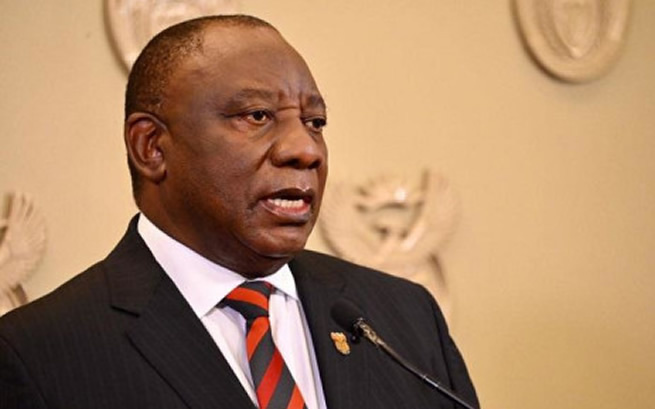A political earthquake has struck South Africa as President Cyril Ramaphosa's new government of national unity (GNU) Cabinet reveals a dramatic shift in power. Two prominent ANC national ministers have been demoted to deputy minister positions, a move that has sent shockwaves through the political landscape and signals a significant loss of influence for the once-dominant party. In their place, the Democratic Alliance (DA) has secured six ministerial and six deputy ministerial positions, a clear indication of their growing strength and the changing tides of South African politics.
The news of the demotions, announced in a late-night address by Ramaphosa, has sparked a flurry of speculation and analysis. Sihle Zikalala and Mondli Gungubele, both well-known figures in the ANC, have been relegated to deputy minister positions, a move that has been interpreted as a strategic manoeuvre by Ramaphosa to appease the DA and secure their support in the GNU government.
The DA's impressive performance in the recent election, where they garnered 20% of the vote, positioned them as a formidable contender. Party leader John Steenhuisen, known for his unwavering commitment to good governance and accountability, has been entrusted with the crucial portfolio of Minister of Agriculture. Steenhuisen's appointment reflects the DA's focus on agricultural development and food security, issues of paramount importance in a country grappling with economic challenges.
Former party chief whip Siviwe Gwarube, widely respected for her strategic acumen and dedication to education reform, has been appointed as the Basic Education Minister. Gwarube's elevation to this crucial role signifies the DA's commitment to improving the quality of education and empowering future generations.
Another notable addition to the cabinet is Dean Macpherson, who will take charge of the Ministry of Public Works and Infrastructure. Macpherson's experience in infrastructure development and his reputation as a proactive legislator make him a natural fit for this position. Under his stewardship, the ministry is expected to prioritize infrastructure projects that stimulate economic growth and create employment opportunities.
The DA's success in securing ministerial positions extends beyond these three key appointments. In a testament to their growing influence, they have also secured six deputy minister positions, ensuring their presence and active participation in various government departments. This marks a significant shift in the South African political landscape, as the DA positions itself as a prominent force in shaping national policies and governance.
While the ANC retains its majority in the GNU Cabinet, this reshuffle sends a clear message that the ruling party can no longer take its dominant position for granted. The ANC's decision to accommodate the DA's rising influence through a power-sharing arrangement reflects the growing need for collaboration and unity in addressing the nation's challenges.
President Ramaphosa, who has actively promoted the concept of a unity government, expressed confidence in the newly formed cabinet. In a statement, he emphasized the importance of inclusivity and collaboration, stating, "This new-look cabinet represents a significant step towards a united South Africa, where parties across the political spectrum work together for the betterment of our nation."
The new cabinet is expected to inject fresh perspectives and ideas into the decision-making process. By incorporating voices from multiple political parties, the government aims to foster a more inclusive and representative approach to governance. This development holds the potential to address the diverse needs and aspirations of South Africans, irrespective of their political affiliations.
As the political landscape continues to evolve, it is evident that South Africa's future lies in forging alliances and embracing cooperation across party lines. The rise of the DA in the GNU Cabinet reflects a shifting paradigm in the country's political dynamics, where no single party can claim exclusive control. This new era of collaboration carries the promise of improved service delivery, effective policy-making, and ultimately, a brighter future for all South Africans.

Follow Us on Twitter










